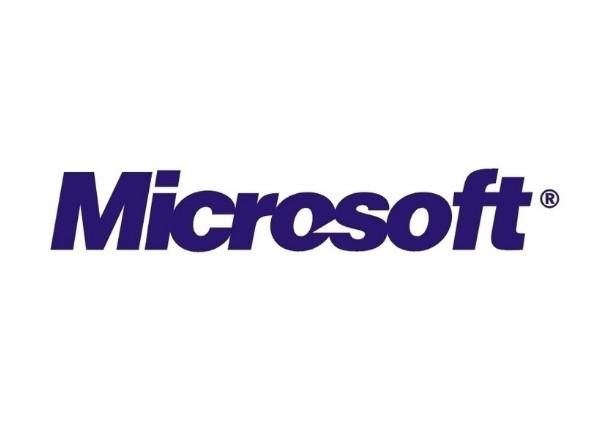(单词翻译:单击)

Business
商业
Microsoft and privacy
微软与隐私
Change of track
转轨
Data on people's online behaviour are worth both paying for and arguing over
广告商愿意花钱购买记录人们在线行为的数据,但跟踪用户行为是否合理则是一个值得探讨的问题
AN OLD saw has it that half of all advertising budgets are wasted—the trouble is, no one knows which half.
人们常说:花在广告上的钱有一半都浪费掉了——问题在于没人知道是哪一半。
In the internet age, at least in theory, this fraction can be much reduced.
在互联网时代,至少在理论上,被浪费的那一部分资金中,有很多都可以节省下来。
By watching what people search for, click on and say online, companies can aim "behavioural" ads at those most likely to buy.
根据人们搜索的关键词、点击的链接及他们在网上所说的内容,企业可以针对那些最有可能购买它们产品的用户投放"行为"广告。
In the past couple of weeks three deals and a quarrel have illustrated the value to advertisers (and their suppliers of software) of such fine-grained information.
在过去几个星期中发生的三起交易及一场争论显示了这些精细信息对于广告商(及他们的软件提供者)的价值。
The first deal came on May 23rd, when Oracle said it was buying Vitrue, which helps firms run their marketing on social media, for a reported $300m.
第一起交易是在5月23日,当时甲骨文公司(Oracle)表示它们将收购Vitrue,这是一家协助企业开展社交网络营销业务的公司。据报道,收购金额为3亿美元。
On June 5th it added Collective Intellect, which analyses what people say about companies on Facebook, Twitter and so forth, for an undisclosed sum.
6月5日,甲骨文公司称它们还将收购Collective Intellect,但并未透露收购价格。Collective Intellect是一家对网民在Facebook、Twitter之类的网站上对企业的评价进行分析的公司。
A day earlier Salesforce.com, a cloud-computing company mustard-keen on social media, had said it would pay $689m for Buddy Media, a competitor of Vitrue's.
就在这一消息传出的前一天(6月4日),极想进军社交网络的云计算公司Salesforce称将斥资6.89亿美元收购Buddy Media(Vitrue的竞争者之一)。
Buddy should fit in with Radian 6, which, like Collective Intellect, monitors social media—and for which Salesforce paid $326m last year.
Buddy与Radian 6应该是可以兼容的。后者在去年被Salesforce以3.26亿美元买下,与Collective Intellect一样,这也是一家对社交网站的数据进行分析的公司。
The quarrel is the latest round in a long-running argument.
前面提到的争论则是已经持续了相当长时间的一场论战的最新一轮。
Should advertisers assume that people are happy to be tracked and sent behavioural ads? Or should they have explicit permission?
广告商们做出如下假设是否合理:用户愿意广告商记录他们的在线行为并且愿意接受广告商投放的行为广告?广告商是否应该得到用户明确的许可?
Many people give scarcely a thought to being electronically snooped on as they browse, but some object furiously.
许多人对于自己的在线行为被监控的做法毫不在乎,但有些人则强烈反对。
In December 2010 America's Federal Trade Commission proposed adding a "do not track" (DNT) option to internet browsers, so that users could tell advertisers that they did not want to be followed.
2010年12月,美国联邦商务委员会建议在浏览器中加入"不允许跟踪(DNT)"的选项,通过启用这一功能,用户可以告诉广告商他们不希望自己的在线行为被跟踪。
Mozilla's Firefox, Microsoft's Internet Explorer and Apple's Safari all offer DNT; Google's Chrome is due to do so this year.
摩斯拉(Mozilla)的火狐(Firefox)、微软(Microsoft)的IE(Internet Explorer)及苹果的浏览器Safari都有"不允许跟踪"选项;今年,谷歌也将在Chrome中加入这一功能。
In February the FTC and the Digital Advertising Alliance (DAA), a consortium of trade bodies, agreed that the industry would get cracking on responding to DNT requests.
2月份,联邦商务委员会(FTC:Federal Trade Commission)和数字广告联盟(DAA:Digital Advertising Alliance,一个商贸团体联盟)已经达成一致意见:广告行业应该着手处理用户提出的"不允许跟踪"请求。
In the European Union a new rule requires websites to ask before using "cookies" to gather data about users' behaviour.
欧盟出台的一项新规定要求网站在利用"cookies"收集用户在线行为的信息之前需要征得用户的同意。
On May 31st Microsoft set off the row. It said that Internet Explorer 10, the version due to appear with Windows 8, a new incarnation of the software firm's operating system, would have DNT as a default.
5月31日,微软率先挑起了争论。微软称即将与Windows8(该公司的新版操作系统)一起推出的IE10中,"不允许跟踪"是默认设置。
Advertisers are horrified. Human nature being what it is, most people stick with default settings.
这个消息令广告商们惶恐不已。大多数用户都不会去修改浏览器的默认设置,这是人的本性使然。
Few switch DNT on now, but if tracking is off it will stay off.
现在很少有人会开启"不允许跟踪"功能,但如果默认就是"不允许跟踪",那么"跟踪"功能就会一直处于关闭状态。
Bob Liodice, the chief executive of the Association of National Advertisers, one of the groups in the DAA, says consumers will be worse off if the industry cannot collect information about their preferences.
美国广告主协会(the Association of National Advertisers)是数字广告联盟下属的一个组织,该协会会长Bob Liodice称,如果广告商不能收集有关用户偏好的信息,那么这对于消费者来说将更为不利。
People will not get fewer ads, he says. "They'll get less meaningful, less targeted ads."
这并不意味着用户会看到的广告会变少。"他们看到的将是那些更没有意义、更没有针对性的广告",他说道。
It is not yet clear how advertisers will respond.
广告商们会对此作何反应仍不清楚。
Getting a DNT signal does not oblige anyone to stop tracking, although some companies (including Twitter) have promised to do so.
即使用户选择"不允许跟踪",这也无法迫使任何一家广告商停止跟踪用户在线行为,尽管有些企业(包括Twitter)已经承诺会根据用户的要求决定是否跟踪。
Unable to tell whether someone really objects to behavioural ads or whether they are sticking with Microsoft's default, some may ignore a DNT signal and press on anyway.
由于无法分辨用户是真的反对行为广告还是因为他们只是没有修改微软浏览器的默认设置,一些公司可能忽略"不允许跟踪"信号,继续记录用户的在线行为。
Also unclear is why Microsoft has gone it alone.
为什么单单微软会采取这样的措施?
After all, it has an ad business too, which it says will comply with DNT requests, though it is still working out how.
个中原因仍不清楚。要知道,微软自身也有广告业务。微软称它们将根据用户的"不允许跟踪"来决定是否记录用户在线行为,不过具体实施方案仍在研究当中。
If it is trying to rile Google, which relies almost wholly on advertising, it has chosen an indirect method: there is no guarantee that DNT by default will become the norm.
如果微软想要激怒Google(几乎所有收入都来自广告业务)的话,那么此举则是一个间接的方法:没人能保证将"不允许跟踪"作为浏览器的默认设置会成为行业规范。
DNT does not seem an obviously huge selling point for Windows 8—though the firm has compared some of its other products favourably with Google's on that count before.
这似乎并不是Windows8很明显的一大卖点——在此之前,微软将其他产品与Google对应的产品进行了对比,认为自己的产品更胜一筹。
Brendon Lynch, Microsoft's chief privacy officer, blogged: "We believe consumers should have more control."
微软的首席隐私官布伦丹?林奇(Brendon Lynch)在博客中写道:"我们认为用户应该有更大的话语权。"
Could it really be that simple?
真的是这么简单吗?


